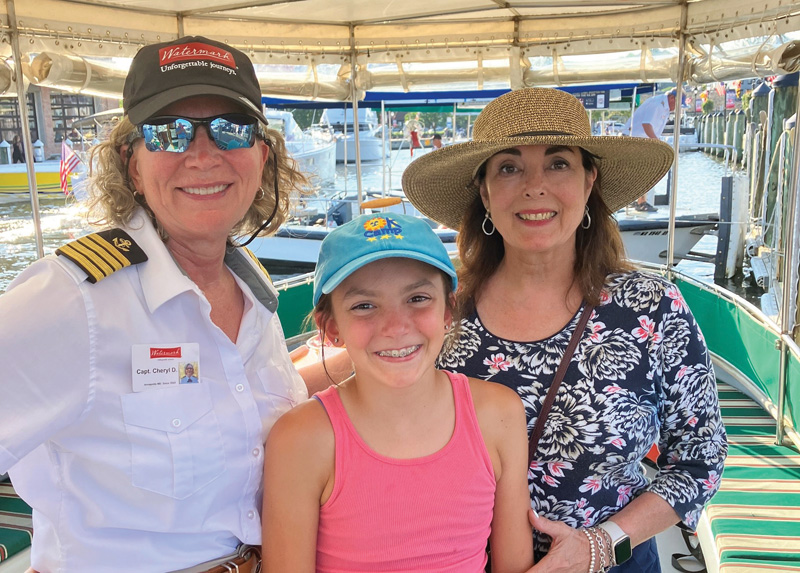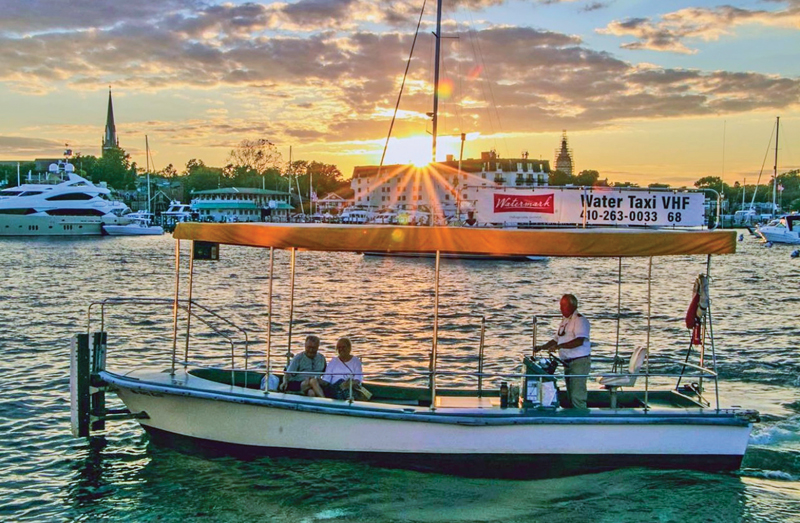Have you ever considered earning a captian's license? Many of us began boating for recreational reasons. Maybe our parents had a sailboat, or we were introduced to sailing by racers who needed crew. Or we simply wanted to enjoy the outdoors and harness the wind. Whatever the reason, I doubt most of us began boating with the thought, “I’m going to get my captain’s license someday.” I certainly didn’t.

Have you ever considered getting your captain's license?
Here are some of the many reasons a sailor or powerboater might decide to get a captain's license.
Personal reasons
When I began sailing, I never considered recording days on the water. I was just happy to have access to small boats, whether my own or through clubs. I didn’t begin logging hours until I started cruising on larger boats, recording weather and destinations.
It wasn’t until my husband considered buying a boat for instructional purposes that we both thought about becoming licensed. After drafting a business plan, we decided not to pursue the commercial use of a personal boat for a variety of reasons. However, my husband decided to get his captain’s license to improve his boating skills.
Several years later, I also decided to become licensed. I can still remember the moment it dawned on me that I had to act, and quickly. We had recently returned from a seven-month “sailbatical,” logging more than 100 days at sea (four hours or more underway). One of the licensing requirements for documenting 360 days of sea time is that 90 days must have occurred within the last three years.
That meant I had a deadline! I was still working full-time and knew I wouldn’t have another opportunity to log 90 days until I retired, which was a long way off. I wasn’t sure if I would ever work my license, but I believed the process would expand my knowledge base.
A friend had recently obtained her captain’s license and enjoyed self-paced education through the Mariners Learning System (MLS). I visited the MLS booth at the Annapolis Sailboat Show and left with a discounted “captain-in-a-box” 25-50-100 Ton Master edition.
I spent two months perusing the printed materials before beginning the online coursework on New Year’s Day. I was ready for the captain’s exam by early April. I passed all sections in one sitting. I completed the paperwork over the summer, and I had my license by autumn.
Knowledge and safety reasons
According to MLS, 80 percent of their students say that they don’t intend to make money by working their captain’s license. Instead, they pursue their credentials for other reasons. The number one reason that most give is to expand their knowledge and safety on the water.

Working commercially
Many licensed captains work on charter boats or fishing vessels. Others enjoy teaching or delivering boats. If you want to work your license, there are primarily two types of captain’s licenses that can be obtained by recreational boaters:
- Operator of Uninspected Passenger Vessels (OUPV), aka six-pack: allows a mariner to operate an uninspected vessel with up to six paying passengers.
- Master Mariner License: qualifies mariners to operate a USCG-inspected vessel up to stated tonnage and maximum certified passenger capacity, with categories of 25, 50, or 100 gross tons.
If you have your own boat and are interested in carrying six or fewer customers, you may want to consider an OUPV license. If you don’t own a boat (or don’t want to use it for commercial purposes) or have a boat but want to carry more than six passengers, a Master Mariner License may be the better option for you.
Although I didn’t realize it eight years ago, I chose the right license for me. I decided to pursue a Master license, even though we had our own boat and I could have chosen just the OUPV license. Because it was just slightly more expensive and study-intensive to get the Master, I chose that path despite being unsure if I’d ever work my license. But now, after retirement from a 44-year non-boating career, I’m working for Watermark and driving Miss Anne, a USCG-inspected vessel that carries up to 22 passengers. I love working my license, and I’m glad that I decided to pursue my Master credential.
Ask the captains
Recently, the Chesapeake Area Professional Captains Association (CAPCA) surveyed its 340 members, asking why they initially got their licenses, and how they are using them. Here are those results, in descending order:
Why did you initially get your license?
- 33% To make money on the water in the near future.
- 23% To make money on the water “someday” or after retirement.
- 20% To increase my personal knowledge and safety on the water.
- 10% For personal pride or evidence of skillset.
- 10% Other (write-ins)
- 2% To volunteer for a non-profit that needs captains.
- 2% To fulfill a family expectation or tradition.
- 2% To capitalize on sea time before expiration, e.g., 90 days within three years.
How do you use your license today?
- 40% I am retired but work my captain’s license for enjoyment or additional funds.
- 26% I supplement my primary income by working my captain’s license on a part-time basis.
- 14% I apply my captain’s license for my own personal use and safety on the water.
- 10% Other (write-ins)
- 9% My primary income is earned by working my captain’s license.
- 2% Being credentialed as a captain enables me to volunteer my services for non-profits or auxiliaries.
Think carefully about your current life and future goals. If there’s a small spark that says “maybe,” perhaps you should consider getting your captain’s license.
by Capt. Cheryl Duvall
About the author: Captain Cheryl Duvall is a USCG Licensed Master, Inland 100 GRT. When she isn't sailing Belle Bateau, you might find her at the helm of Watermark's Miss Anne in Annapolis. Email her at [email protected].
Learn more:
Annapolis School of Seamanship
Chesapeake Area Professional Captains Assocation




